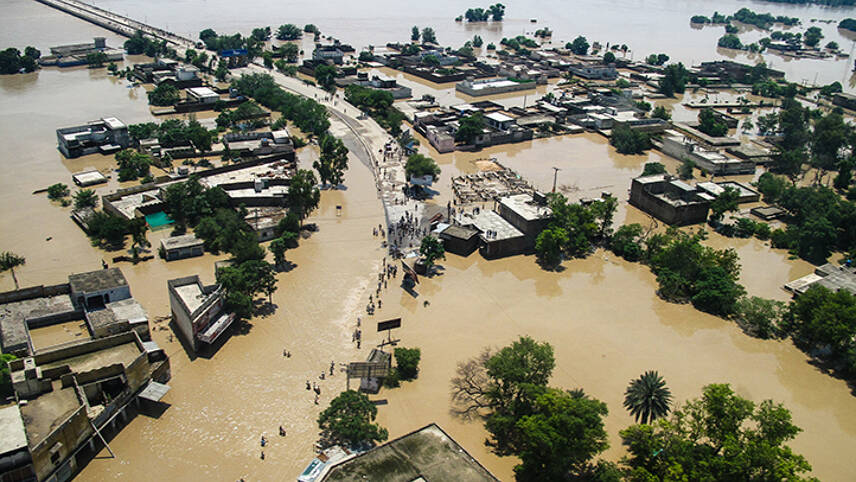Register for free and continue reading
Join our growing army of changemakers and get unlimited access to our premium content

This is according to ECIU’s ‘Climate impacts on UK food imports’ study, which is based on the Government trade data.
According to the study, five food products collectively amount to £8bn in imports. These include banana, rice, tea, coffee and sugar. However, these essentials are sourced from nations affected by escalating droughts and floods.
The study further highlights that £2bn worth of these imports originate from eight of the world’s economically challenged countries facing climate change impacts. These include Kenya, Brazil, Peru, Vietnam, India, Colombia, Belize and Ivory Coast.
The second-biggest source of UK rice imports, Pakistan, saw yields fall by up to 20% in the aftermath of devastating floods in 2022. According to the scientists at the World Weather Attribution, the rainfall that caused the flooding had been made 50% more intense by climate change.
The study emphasises that the tea plantations in Kenya are shrinking due to prolonged hot spells and erratic rainfall, while Vietnam’s coffee production is facing the dual brunt of extreme storms and deteriorating bean quality amid prolonged heatwaves.
ECIU’s head of international programme Gareth Redmond-King said: “The UK Government is funding projects around the world to help food producers face these challenges with measures to, for example, reduce and reverse land degradation, support farmers to access markets, and to shift agriculture methods from subsistence to sustainability.
“But as climate change creates ever more extreme weather, more of that support will be needed to keep the food flowing, but beyond certain temperatures there are limits to what we can do and some of these crops will simply fail.”
Beyond foreign aid: Building climate adaptation and resilience
According to an analysis by Carbon Brief, the UK has contributed £12.63bn in international climate finance from 2011/12 through 2022/23. Approximately 80% of this funding has been directed to funds or institutions responsible for distributing financial aid across multiple nations.
The remainder has been directly allocated to some developing nations including Kenya (£377.5m), India (£144.8m), Colombia (£108.4m) and Brazil (£72.3m).
However, several nations, such as Belize, Ivory Coast and Peru, which supply some of the UK’s top ten most vulnerable foods, did not receive direct climate finance from the UK during this period.
Cambridge’s Lucy Cavendish College research fellow Dr Rihab Khalid said: “If we want to protect those livelihoods overseas, and secure our food into the future, then Instead of cutting Official Development Assistance overseas, the UK would be far better moving beyond mere aid and work to invest more in adaptation and resilience in the countries worst affected.
“Without that, our evening cup of tea and favourites like biryani, get ever more expensive, and in shorter supply in the future.”
A recent ECIU analysis estimated that British households could face an additional cost of £605 for food due to climate change impacts and soaring oil, gas and fertiliser prices in 2022 and 2023.
According to the Climate Change Committee (CCC), a fifth of the UK’s critical supply chains originate in areas of climate vulnerability, rising to 50% for its food supply chains.
Redmond-King added: “Unless we get to net-zero emissions, the weather worsens, and these food imports can no longer be guaranteed as before.
“To give ourselves the best chance of shoring up our food security, the UK needs to be a leader at the COP28 negotiations, encouraging faster emissions cuts from other states and providing support for struggling countries, but that only works if the UK is seen to be doing all it can at home and not slowing down.”
Last week at COP28, more than 130 governments and dozens of other organisations pledged to urgently reduce the environmental impact of food systems and improve their climate resilience. The signatories include the UK, Peru, Brazil, Vietnam and Colombia.
It bears noting that absent from the list of signatories are India, Ivory Coast, Kenya and Belize.


Please login or Register to leave a comment.